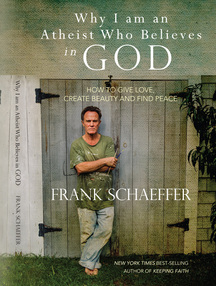Meet David Barton, the theocratic guru to the far far right running the umbrella PAC of the Cruz family of super PACs. David Barton is a hero to many grassroots evangelicals, but is considered a fraud – the Howard Zinn of the Christian right – by evangelical historians and scholars. Jon Ward has written a VERY important expose of the Cruz-Barton plan for America… This article was first published by Yahoo News and is republished here with the written permission of the author.
Ted Cruz’s controversial super-PAC leader divides evangelicals

Christian evangelist and self-styled historian David Barton, center, with hat, at the 2004 Republican National Convention in New York City. (Photo: Joe Raedle/Getty Images)
Last Saturday night in northeastern Iowa, moments before Glenn Beck delivered a 56-minute speech in which he eventually got around to endorsing Sen. Ted Cruz for president, a willowy man with powder puff white hair strolled to the lectern and said a few words.
Not once did the man — who spoke of Beck as “a visionary” and who laid his hands on Beck in prayer beforehand — mention Cruz’s name.
David Barton also never told the crowd inside the Five Sullivan Brothers Convention Center his name, even though he introduced other speakers and served as the event’s de facto master of ceremonies.
Barton’s anonymity was fitting. It was something of a metaphor for the relationship between Cruz and Barton, both of whom hail from Texas. Cruz has maintained a delicate balance in his association with Barton, a figure who is a hero to some evangelical Christians, and a fraud to others.
Few figures represent the split running down the middle of American evangelicalism better than Barton, a 62-year-old self-taught historian (critics call him a pseudo-historian) who has for more than two decades stumped across the country telling conservative Christians that their nation’s religious heritage has been covered up and stolen from them by godless secular progressives.
Many in the crowd doubtless knew who Barton was even without an introduction. He is something of a celebrity to those who have viewed his videos at church events or online, or who saw him on Fox News when he regularly appeared on Beck’s show. But Barton’s reputation has taken some big hits in the last few years, and the integrity of his articles, videos and books has been widely called into question, most aggressively by some conservative evangelical scholars and writers. One history professor at a Christian university said Barton was the conservative version of left-wing academic Howard Zinn.

Republican presidential candidate Ted Cruz is joined on stage by conservative commentator Glenn Beck at Five Sullivan Brothers Convention Center in Waterloo, Iowa, January 23, 2016. (Photo: Aaron P. Bernstein/Reuters)
“Neither of them are historians. They just want to use and manipulate the past to serve their own political or ideological agendas in the present,” wrote John Fea, chair of the history department at Messiah College in Mechanicsburg, Pa.
Yet Barton is helpful to Cruz because the presidential candidate has built his strategy for winning the Republican nomination around winning in Iowa, the first state to vote in the primary process, and a place where 60 percent of the GOP electorate identifies as evangelical. Too close an association with Barton, however, would open Cruz up to questions about the influence on his thinking of a man whose views about faith and politics can often sound like Christian reconstructionism — the belief that government laws and policies should be drawn explicitly from the Bible.
Slideshow: On the trail and down to the wire in Iowa >>>
Barton argued in 2011 that the progressive income tax, capital gains tax and the estate tax (or death tax), are all contrary to the Bible. “Jesus has two entire teachings on the capital gains tax,” Barton claimed, citing Luke 19:13-26 and Matthew 25:14-29. And, he added, “Jesus did not like the minimum wage.”
The Bible does not address any of these issues explicitly. Barton was taking parables told by Jesus in the New Testament and interpreting them quite liberally. Barton said in an interview that his critics often misinterpret or exaggerate his many claims. “I like the Constitution we’ve got. I’m not trying to replace it with the Bible,” he said. When asked about his comments about Jesus’ views on tax policy, Barton deflected the question. “What I often say in reporting history doesn’t mean that’s what I’m advocating for policy right now,” he said.
Barton may say statements about Jesus’ view of taxes aren’t prescriptive, but for Christians who believe the Bible should govern all aspects of their lives, Barton’s comments provide a theological justification for ignoring their tax bill that takes higher precedence than the law. If the word of God is explicitly opposed to what the Internal Revenue Service is doing, such a believer might reason with himself, then he or she is in fact bound to oppose and defy the IRS.
These are not the types of statements the Cruz campaign wants their candidate being questioned about on the campaign trail. In September Barton was named as the leader of a pro-Cruz super-PAC, Keep the Promise, making him an official supporter of Cruz’s but without any official connection to Cruz’s campaign. Of course, if Cruz world was uncomfortable with Barton’s endorsement, they wouldn’t have wanted him involved with the super-PAC at all.
One of Barton’s most noticeable projects so far in the campaign was to gather roughly 300 pastors and “faith leaders” at the Texas ranch of fracking billionaire Farris Wilks during the week after Christmas for a day of discussion and prayer. (Wilks had given $10 million to Keep the Promise III, one of three super-PACs under the umbrella of the one run by Barton.)
Afterward, Barton told The New York Times that Cruz spent 90 minutes praying with the group, which was a “pleasant surprise” to those in attendance.
Some in the sprawling world of the multiple Cruz super-PACs have taken potshots at Barton. “David Barton is known among evangelical pastors but he’s not known as a political strategist or a fundraiser,” said an official from one of Cruz’s super-PACs. “He’s probably one of the least active people on the whole team.”
But private conversations with those who know the PAC’s workings suggest Barton is a central figure, making key hires and managing decision making and strategy. In November, Barton was the person who hired Drew Ryun, a former Republican National Committee operative who in recent years has worked in grassroots politics outside Washington, often taking on the establishment.
Barton’s hiring for the PAC last September was another nod to older evangelicals that Cruz should be their man. Cruz had appealed to the Jerry Falwell wing of evangelicalism since announcing his candidacy last spring at Liberty University, the Christian college founded by the late Falwell, whose son Jerry Jr. now runs the school (and whoendorsed Donald Trump this week). Cruz has worked hard to build a network of pastors and Christian activists across Iowa who are key to high turnout on the night of the caucuses.

Liberty University President Jerry Falwell Jr., right, with Republican presidential candidate Donald Trump, Lynchburg, Va., January 18, 2016. (Photo: Chip Somodevilla/Getty Images)
Barton’s endorsement, said Iowa Republican operative Ann Trimble-Ray, is “probably more impactful with the consistent caucus-goer” than an endorsement from someone like former Alaska Gov. Sarah Palin, who last week came out for Trump. He’s not the only Christian activist with more sway than Palin, said Trimble-Ray, who serves as Iowa Rep. Steve King’s point person in western Iowa. Phyllis Schafly, the nonagenarian but still-venerated conservative activist, is also influential among older religious voters, Trimble-Ray said, and she has endorsed Trump as well.
“Her legend resonates with a segment of the right wing and Barton’s does too,” Trimble-Ray said.
Cruz is smart enough to know that if he remains competitive in the Republican primary beyond Iowa, he will need support from evangelicals who think Barton is an embarrassment. One of the more robust factions inside American evangelicalism is this set: a mostly younger group who reject the culture war approach of Falwell’s Moral Majority. (I’ve dubbed them the “Keller wing,” after New York city pastor and author Tim Keller.)
These faith voters are not yet as reliable a voting bloc as the older faith voters in states like Iowa, who have been conditioned to organize politically around faith issues. But there are influential evangelical leaders — some of them more politically active than others — who have no time for a figure like Barton. Russell Moore of the Southern Baptists, megachurch pastor Rick Warren, who is on a faith advisory board for Republican presidential candidate Marco Rubio, and even Keller himself employ a style that takes a different approach to post-Christian America than someone like Barton.
Barton argues that America was founded as a Christian nation, though he insisted to me that he defined this only as “a nation that was influenced by Christian principles and culture.” He says that much of America’s founding documents — in particular the Declaration of Independence — and its laws were derived from the Bible. The implication, despite his denials, is that this is what it should be again.
To many, Barton’s argument that America was a Christian nation at its founding is, as journalist Julie Ingersoll put it, vital to older Christians’ “mythic understanding” of themselves. It is a vital component of their identity that they are part of the nation’s true heritage.
Many younger evangelicals, even those who wish for greater spiritual vitality in the nation and for more Christian influence in culture and politics, don’t have or seek the same identity. They embrace the notion of being pilgrims, sojourners, even aliens in a strange land, as a way of life and identity that lines up more closely with their faith and the teachings of the Bible. In other words, they’re more comfortable being a cultural minority, and advocating for their beliefs and policies based on their beliefs from such a position. For older evangelicals, who grew up at a time when American culture endorsed and affirmed their way of life and their beliefs, this is a more frightening proposition.

David Barton, founder of WallBuilders, prays at The Response, a day-long “call to prayer for a nation in crisis,” that attracted more than 30,000 to Reliant Stadium in Houston in 2011. (Photo: Bob Daemmrich/Corbis)
And older evangelicals like Barton often see the younger generation as cowards, shrinking away from the necessary cultural combat, afraid of the slings and arrows of standing up for what is right. In this worldview, criticism and opposition is a badge of honor, and can be viewed as validation that one is on the right track.
This may explain why Barton remains unbowed despite the incredible criticism he has come under in recent years.
Barton’s credibility has been called into question more than once since he self-published his first book in 1989, “The Myth of Separation.” In the mid-90s he had to retract a dozen quotes he had used from historical figures, mostly the Founding Fathers, after historians found errors and inaccuracies. Nonetheless, his popularity with fundamentalist Christians continued to grow. Much of Barton’s allure is based on his collection of what he says is more than 100,000 original documents that date back to the pre-1812 American revolutionary era, which he stores in a vault at the headquarters of his organization, WallBuilders, in Aledo, Texas. He peppers his presentations or talking points with a dizzying number of references and quotations.
Barton became a national figure during George W. Bush’s presidency. He was elected co-chair of the Texas GOP and by 2004 he had been hired by the Republican National Committee to help get social conservatives to the polls to reelect Bush. In 2005, Time Magazine named Barton one of the most influential evangelicals in America. Barton was an adviser to former Arkansas Gov. Mike Huckabee, who won the Iowa caucuses in 2008 before his presidential candidacy lost steam.
In May of 2012, Barton was interviewed by a puzzled but impressed Jon Stewart on “The Daily Show.” But around that same time, Barton’s latest book on Thomas Jefferson came under heavy scrutiny from a group of evangelical scholars. The same week in August that Barton was skeptically profiled by National Public Radio, Thomas Nelson, the book’s publisher,pulled the book from stores and ceased publication, even though the book had hit the New York Times bestseller list. The publisher had “lost confidence” in Barton’s book based on inquiries from conservative historians.
“The withdrawing a book from the market is extremely rare. It’s so rare I can’t think of the last time we’ve done this,” said Thomas Nelson’s publisher, Brian Hampton.
The flame wars between Barton and his critics have continued to this day, as Barton’s book, “The Jefferson Lies,” was republished earlier this month by World Net Daily. Even among some Barton friends and supporters, his credibility has been hurt, in large part because the criticism of his work came not from liberal academics but from historians and other academics who are Christians and work at Christian institutions.
“That’s what scared me,” said Don McElroy, the former chairman of the Texas Board of Education, who was at the center of a major fight over curriculum standards in 2010 and who praised Barton’s input as a member of a six-person review board. “I can’t imagine [Barton] making mistakes, but I was stunned by the criticism.”
“Most of the time I find him to be right as rain,” McElroy said of Barton.
Barton remains defiant. “Liberals will fight the truth with lies, good with evil, honesty with deceit,” he wrote on Twitter this week with a link to his book. Earlier this month he was on Beck’s show on the TV network that Beck started and owns, The Blaze, arguing that Thomas Jefferson “came out very clearly” against gay rights.
And for those who hear only Barton’s side of the story, he will remain a heroic figure. The question relevant for voters is, what does Ted Cruz think of him?
Cruz told Politico earlier this year that Barton is “a good man, a courageous leader and a friend.”
“David’s historical research has helped millions rediscover the founding principles of our nation and the incredible sacrifices that men and women of faith made to bequeath to us the freest and most prosperous nation in the world,” Cruz said.
Some speculate that Barton is a Cruz-whisperer pushing him toward theocracy, but — setting aside the question of what exactly Barton wants the government to look like — there’s little evidence that the two men are close.
However, Barton has deeply influenced Raphael Cruz, the candidate’s father, who spent much of the last year traveling across Iowa speaking in churches about his son. Raphael Cruz’s worldview is similar to Barton’s, and Barton’s historical research has given Raphael Cruz more fodder to believe that America is losing its soul, and that Christians must “take this country back.” Raphael Cruz has published a new book, “A Time for Action: Empowering the Faithful to Reclaim America,” in which he quotes and cites Barton.

Rafael Cruz, center, father of Republican presidential candidate Sen. Ted Cruz, signs an autograph at a rally at the Five Sullivan Brothers Convention Center in Waterloo, Iowa, Saturday, Jan. 23, 2016. (Photo: Andrew Harnik/AP)
“Rafael and David are extremely close,” said Gary Miller, who runs a group called “Talk Less! Pray More!” and also works with operatives like David Lane who organize events to bring politicians to speak to groups of Christian pastors across the country.
“When it comes to Ted, there is a friendship, but I get the distinct impression that Ted Cruz is his own man,” Miller said. “He certainly recognizes that David Barton has a voice among evangelicals, but you also would have to know that David Barton drives some evangelicals crazy. I’m not one of those, but I have friends of mine who are.”
“There’s a wider range of evangelicals that have to be embraced,” he said.
Ted Cruz straddles the worlds inside conservative evangelicalism. At 45, he is young enough to understand the mentality of the Keller wing. But he was raised by a strong-willed political refugee from Cuba who came to fiercely embrace the combative culture war approach of the Falwell wing. And he knows that the “take back America” crowd is for the moment the dominant voting bloc in Republican politics.
And thus, he welcomes the embrace of a figure like Barton, but at arms length.
(Cover tile: Photo illustration: Yahoo News, photos: Andrew Harnick/AP, Bob Daemmrich/Corbis, Patrick Semansky/AP)
— Jon Ward Yahoo News @jonward11
Frank Schaeffer is a writer. His latest book —WHY I AM AN ATHEIST WHO BELIEVES IN GOD: How to give love, create beauty and find peace













